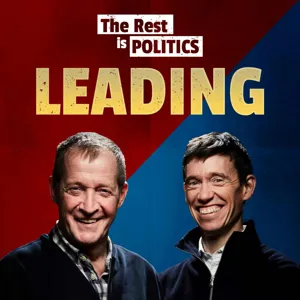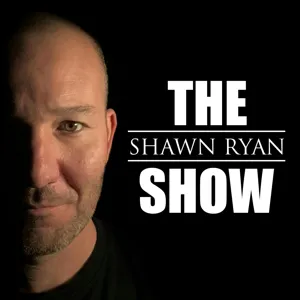Podcast Summary
100 companies produce 71% of global carbon emissions: Holding large corporations accountable for their carbon emissions is crucial in the fight against climate change. While individuals can make a difference, systemic change is necessary.
While individual actions are important, a significant portion of global carbon emissions comes from a small number of companies. This claim, which has been circulating for several years, originated from a report published by the Carbon Disclosure Project in 2017. The report found that 100 companies were responsible for 71% of global carbon emissions. This statistic can seem daunting, but it highlights the importance of holding large corporations accountable for their contributions to climate change. While individuals can make a difference through small changes in their daily lives, systemic change is also necessary to address the root causes of carbon emissions. It's essential to continue the conversation around corporate responsibility and work towards solutions that involve both individual actions and collective efforts to reduce carbon emissions.
China leads in global fossil fuel emissions through state-owned companies: China's state-owned fossil fuel companies contribute 71% of global emissions, with extractors responsible for 10%, and end users emitting the rest.
The report reveals that China, as a country, is the largest contributor to global fossil fuel emissions when considering state-owned companies as a single entity. This contributes significantly to the 71% of emissions attributed to fossil fuel extraction companies. The study also places full responsibility for these emissions on the extractors themselves, rather than the end users. However, it's important to note that about 10% of these emissions come from the extraction process itself, while the remaining 90% is emitted by downstream users. The underlying analysis is complex, but it provides valuable insights into the role of fossil fuel extraction companies in global emissions.
Evaluating the validity of reports and statistics: Critically evaluate sources and methodologies of reports and statistics, as individual actions also contribute to addressing global challenges.
While reports and studies can provide valuable insights into various aspects of our world, it's important to critically evaluate their sources and methodologies. For instance, a report that claims 71% of carbon emissions are caused by a small number of companies is a reasonable estimation, but it's essential to understand its limitations. Similarly, a claim that South African stress levels increased by 56% due to the pandemic comes from a survey conducted by a pharmaceutical company, but the meaning and accuracy of such a statistic can be debated. These examples remind us that while data and statistics can help us understand complex issues, they should be approached with a critical and informed perspective. Additionally, they serve as a reminder that we all have a role to play in addressing global challenges like climate change and mental health, and individual actions matter.
Survey data on stress levels in South Africa during pandemic may be limited and not accurate: Claims of a 56% increase in stress levels among South Africans based on a survey should be approached with caution due to survey limitations and lack of robust research.
The claim of a 56% increase in stress levels among South Africans based on a survey is not an accurate representation of the data. The survey primarily consisted of yes or no questions, which limited the ability to capture nuanced data and did not provide a baseline measure of stress levels before the pandemic. While it's clear that many people experienced increased stress during the pandemic, it's important to note that the survey data does not provide concrete evidence of the extent or magnitude of the change. Additionally, there is limited research specifically on stress levels in the South African context during the pandemic. A report by the World Health Organization found an increase in anxiety disorders globally, but the data was not representative of low and middle income countries like South Africa. Therefore, it's crucial to approach claims about changes in stress levels during the pandemic with caution and to look for more robust research to support such claims.
Resources for growing and adapting to new stages: Shopify offers a flexible platform for businesses to grow online and in person, while UnitedHealthcare Insurance Plans provide budget-friendly coverage options for individuals during life transitions
While the discussion focused on measuring the prevalence of stress rather than its severity, it's important to remember that there are resources available to help individuals and businesses grow and adapt to new stages. Shopify offers a flexible platform for selling online and in person, helping businesses grow from small beginnings to larger successes. Flexibility is also a key feature of UnitedHealthcare Insurance Plans, which offer budget-friendly coverage options for various stages of life, such as between jobs or turning a side hustle into a full-time venture. These plans provide flexibility and peace of mind, allowing individuals to focus on their personal and professional growth.





